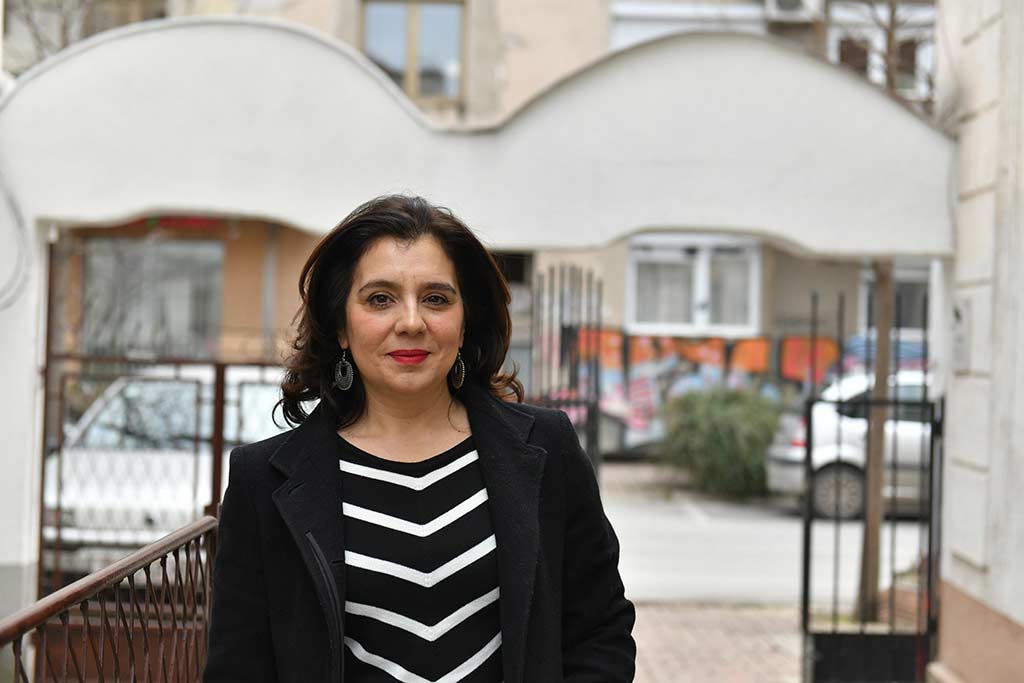“The freedom to do what I believe in”
She’s been bugged, accused of corruption and slandered by the press. Still, Uranija Pirovska has never questioned her decision to dedicate her life to working for human rights.

Uranija Pirovska oozes confidence as she sweeps into the Helsinki Committee’s office in central Skopje. Determination is written all over her—which might have something to do with the fact that she’s defended human rights for more than two decades.
When Uranija graduated from law school at the age of 27, working as a lawyer or judge didn’t feel quite right. But when she joined the North Macedonia Ombudsman office, with its mandate of safeguarding citizens’ rights, she fit right in.
“I wanted to help people, not decide over their lives,” Uranija explains.
Out on the streets
Uranija remained at the Ombudsman’s office for 15 years. When she left to take up the position of executive director at the Helsinki Committee in 2012, times were difficult for human rights organisations in North Macedonia.
Uranija says she was “very loud and very critical” of the government at the time, as it shut out civil society and accused activists of being funded by the opposition. Her actions received widespread attention both in North Macedonia and abroad.
“I think it was our courage, and the fact that we were so vocal during those hard times, that made us successful. We showed the world that we’re an organisation that makes a difference,” says Uranija.
Back then, she and her team “spent more time in the streets than in the office”. They were a thorn in the regime’s side. Along with other organisations, the Helsinki Committee was subjected to a protracted financial inspection, with every single bit of paper being poured over and investigated.
“They were in our office every single day for seven months,” Uranija says.
“I want freedom”
Working for human rights comes at a price. Just like many other activists, Uranija’s phone was tapped for years, and she’s been vilified and slandered in the media. She mentions the incidents in passing and says she’s never been afraid for her own safety. But when control was at its strictest, she did worry about the organisation. The Helsinki Committee’s office has been attacked several times.
Uranija also struggles to separate her work life from her private life. “This job is very demanding. Going home in the evening doesn’t mean I can leave my work behind. People still want to be able to ring me, even after working hours. And when someone wants to report a human rights violation, I can’t say ‘sorry, I’m not working right now’. So I work 24/7,” she describes.
But she emphasises that she doesn’t feel limited by the demands of the job: “My daughter is grown up now, and I love what I do. I’ve never once questioned my decision to come work here.”
Uranija says she feels motivated by working for an organisation that questions norms and pushes the envelope. Freedom is what she values more than anything:
“I don’t want to work for the government. I want to feel free to say what I think and do what I believe in the most. Here, I have the freedom to work for what I believe people in our society really need.”
Kvinna till Kvinna has worked for women’s rights in North Macedonia since 1999. We support and cooperate with several local women’s rights organisations to end gender-based violence and defend women’s rights. We also work to ensure that gender equality, women’s participation and women’s rights are on the agenda as North Macedonia applies for EU membership, and that women are participating in the negotiation process.